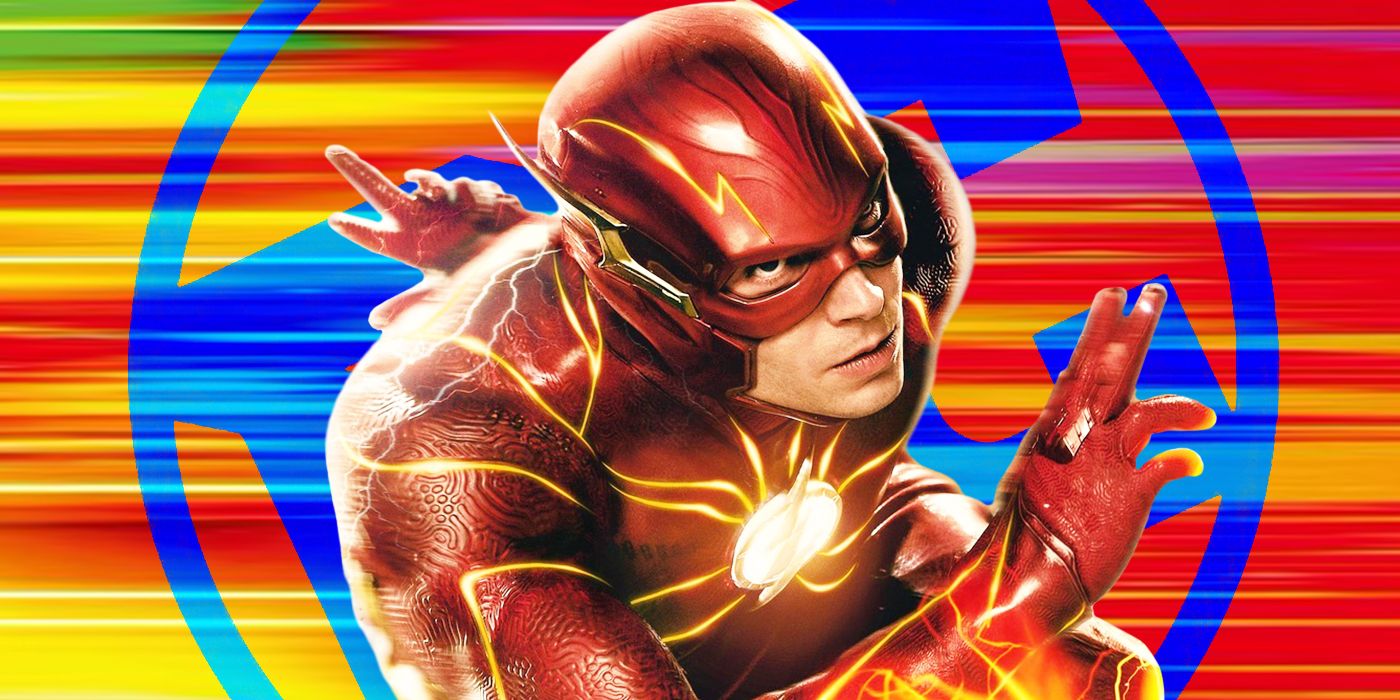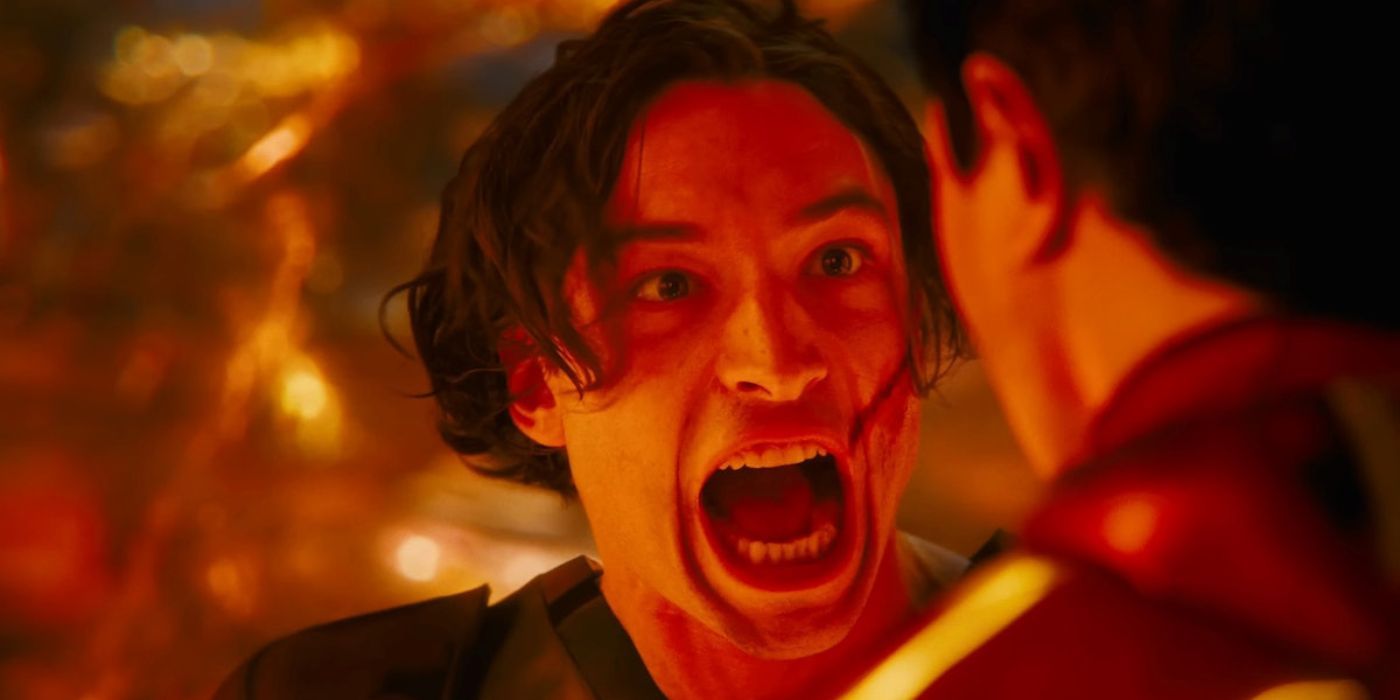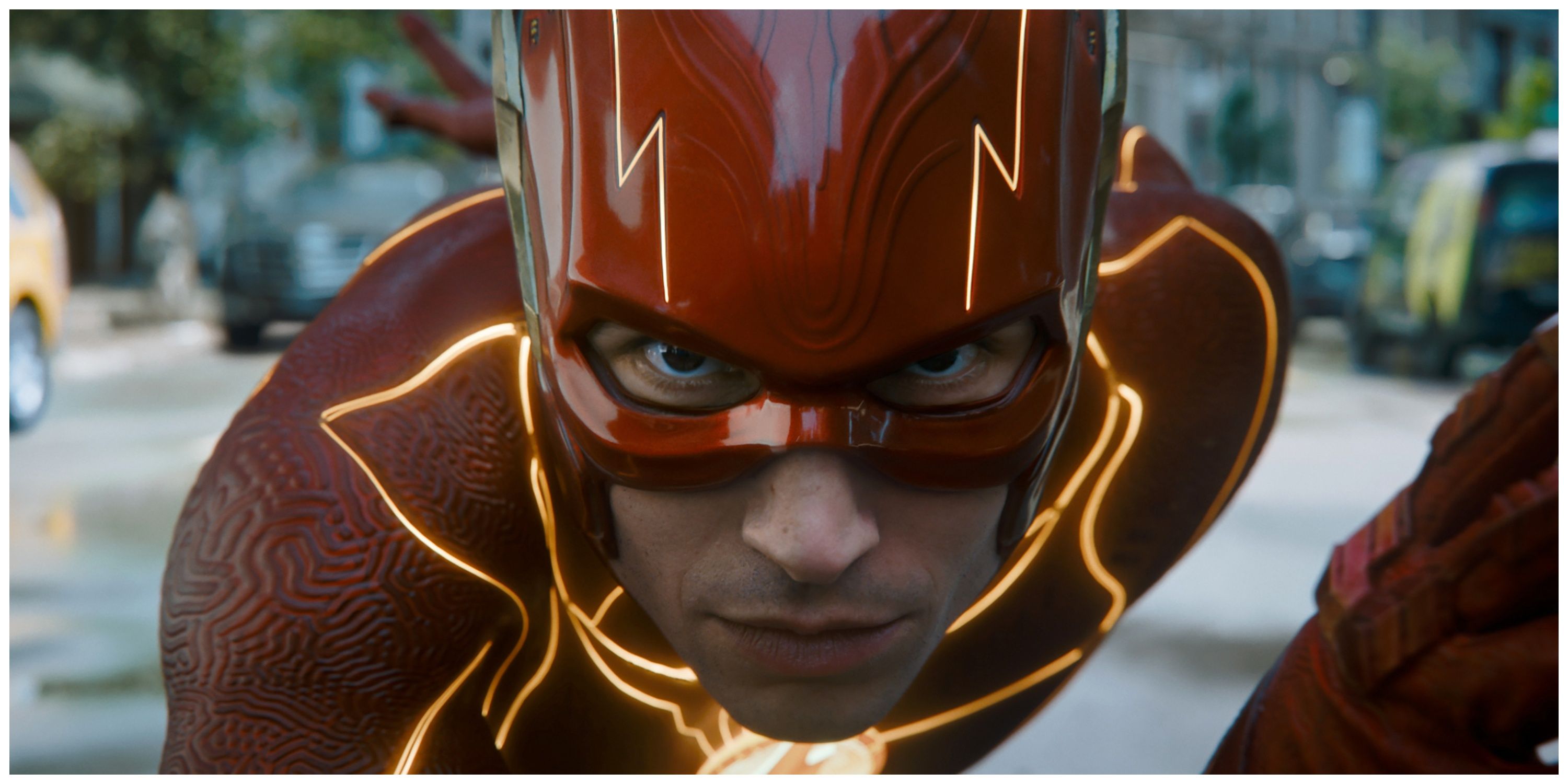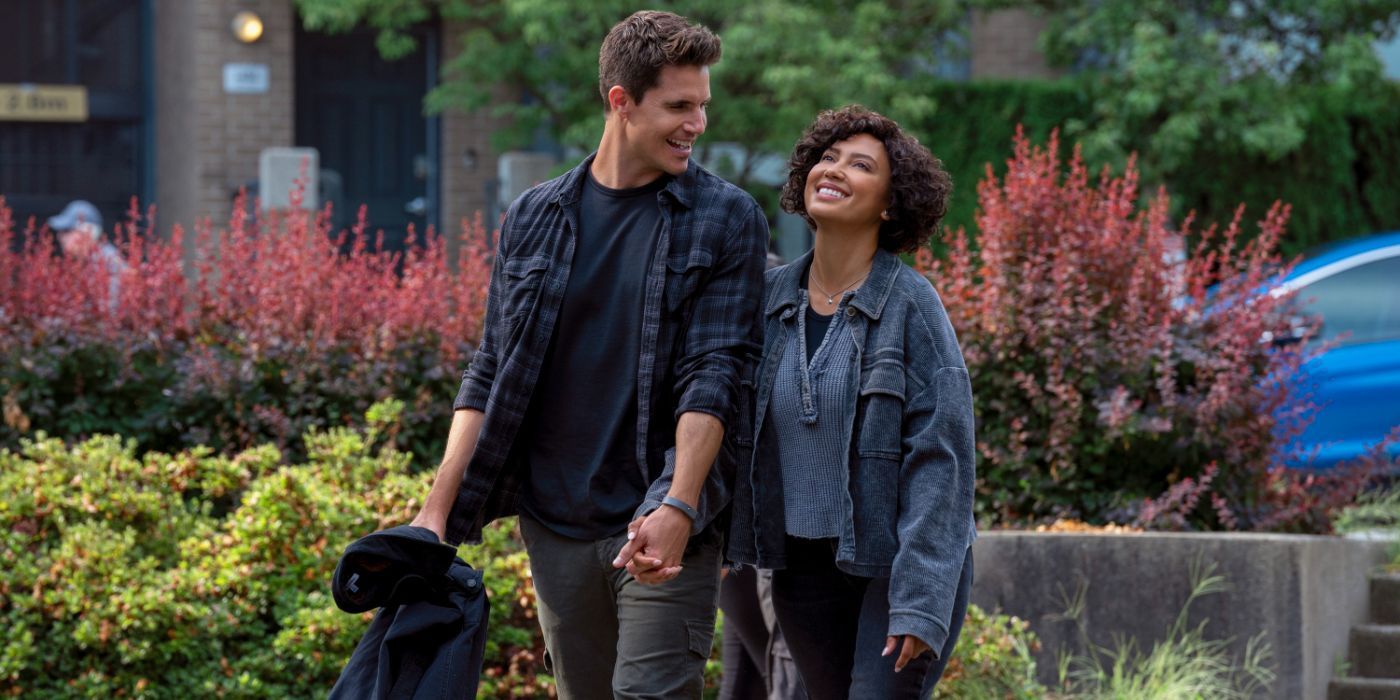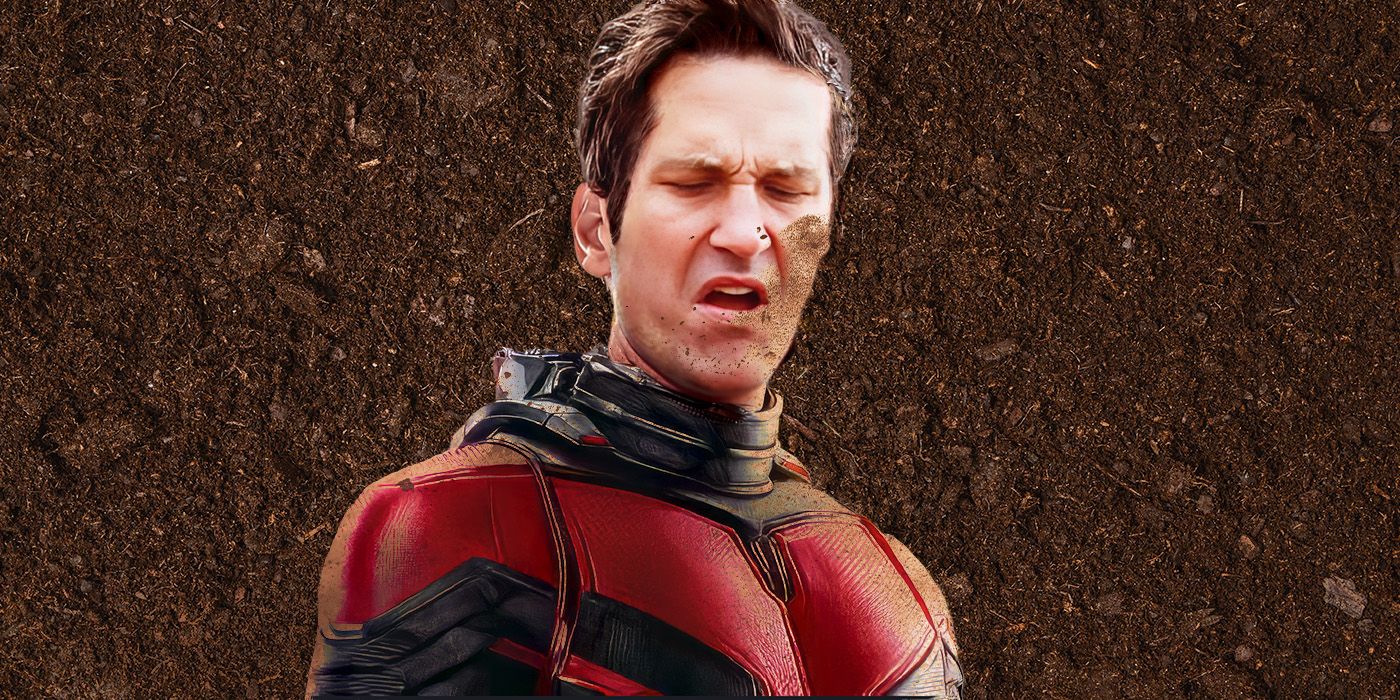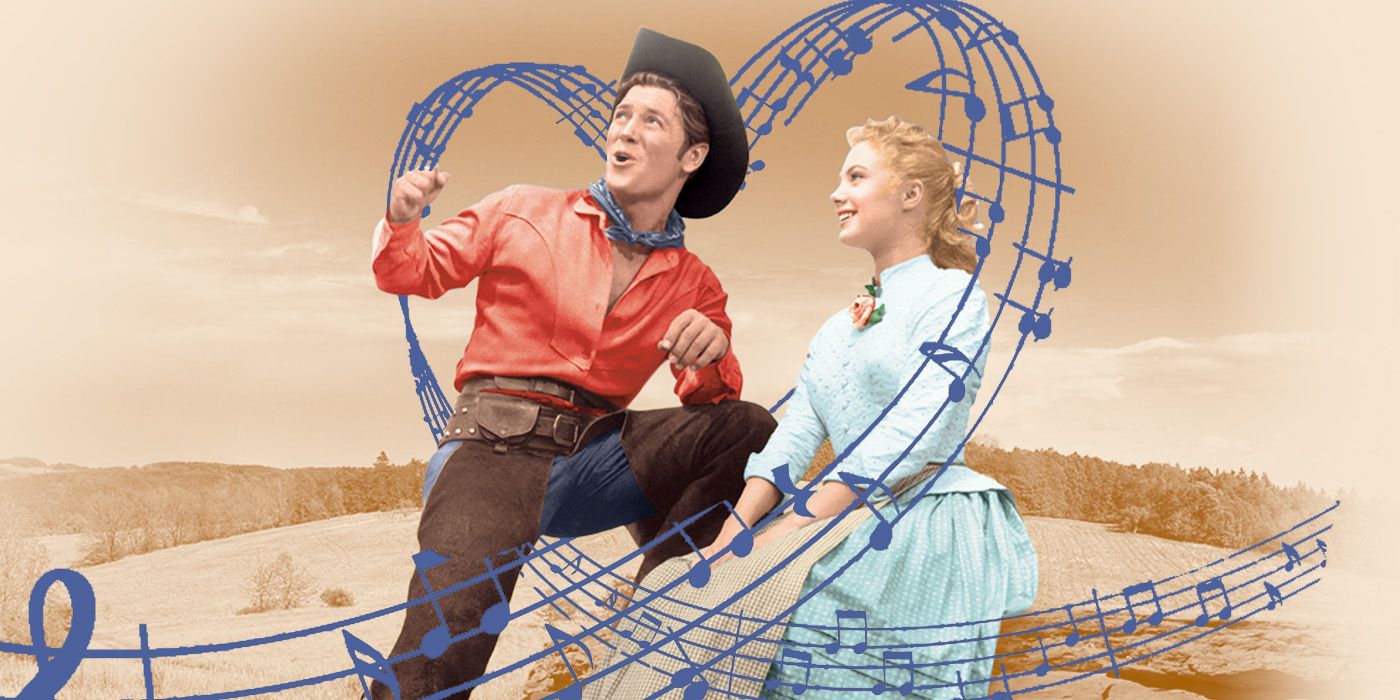The Big Picture
- The Flash exemplifies the flaws of the DCEU, from its lack of clear direction to its inconsistent tone and execution of multiple storylines.
- The film set itself up for failure by promoting itself as a major superhero hit, leading to public disappointment and rejection despite positive endorsements.
- The messy drama behind the scenes, including reactionary editing and personnel changes, further contributed to the problems faced by the DCEU.
After years of delays and production issues, The Flash finally arrived and it was big ‘ol disappointment. Between the dismal box office opening, middling critical reception, and of course, the controversies with Ezra Miller, The Flash has ended the DC Extended Universe with a whimper instead of a big, bright bang. However, with all the mess that has come from The Flash, it has one thing going for it: it is the perfect representation of what went wrong with the DCEU.
For the past decade, the DCEU, along with other film franchises, has tried to play catch up with the Marvel Cinematic Universe. Out of that pack of MCU imitations, the DCEU was the closest to reaching the heights and success that Marvel has had with its Infinity Saga. But, the term success is used rather loosely as it is less a cohesive cinematic interconnected universe, but a collection of hits and misses that will later be obliterated to make way for James Gunn and Peter Safran‘s new DCU. Despite it being a solid multiverse film, The Flash, like most of the DCEU, shoots itself in the foot.
The Flash
- Release Date
- June 16, 2023
- Director
- Andres Muschietti
- Cast
- Ezra Miller, Michael Keaton, Sasha Calle
- Rating
- PG-13
- Genres
- Superhero, Action, Adventure, Fantasy, Sci-Fi
- Studio
- Warner Bros
- Writers
- Gardner Fox, Joby Harold, Harry Lampert
- Franchise
- DC
‘The Flash’ and the DCEU Didn’t Know What They Were Trying To Do
The Flash seems to be multiple films all at once. Understandingly, it’s a multiverse film that brings in multiple versions of the same characters, (I mean, they brought in Michael Keaton‘s Batman), so it was always going to be a film that was going to do a lot. But it’s usually controlled chaos in films like Spider-Man: Across the Spider-Verse or Everything Everywhere All At Once, and not everything is thrown together in one package. The Flash wants to be a Flash origin story, a follow-up to the Keaton Batman duology, an introduction film to Supergirl, as well as a reset for the DCEU. It never wants to go down one path, but take shortcuts into different ideas for a film.
One moment in the film that was a strong suit was the sequence when the main Barry (Miller) teaches past Barry (also Miller) how to harness his new powers and be the Flash. This stretch of the film seems like it was supposed to work as a Flash origin story that we never had in the DCEU. However, we also have another potential storyline involving an older Batman (Keaton) who stopped being Batman as Gotham doesn’t need Batman anymore. But wait, Gotham doesn’t need Batman? The city and the character are so intrinsically linked that to have one exist without the other is worthy of a film itself and not a throwaway line. This isn’t a case of having a cake and eating it too, but wanting to have as many flavors of cake all at once. Likewise, the DCEU didn’t know what flavor it wanted to be its base.
‘Man of Steel’ Kicked the DCEU Off With a Serious Tone
Starting out with 2013’s Man of Steel, the DCEU began with a darker, more serious tone in lieu of a lighter, more playful tone. Under the creative vision of Zack Snyder, the DCEU is meaner and more brooding, with later installments sharing that view with Batman v. Superman, and Zack Snyder’s Justice League. However, the tone was never consistent. Films would range from the light-hearted, silly Shazam!, the heartfelt, but the zanier The Suicide Squad, to the hopeful epic of Wonder Woman. On an individual level, some of these DC movies worked better than others. Some were both critical and financial successes, while others were overall less successful.
Nevertheless, it does feel like these films don’t exist in the same universe and are DCEU in name only. Not because they don’t have the exact identical tone, but there was never a benchmark for these films to match themselves against. For example, Captain America: Winter Soldier and Guardians of the Galaxy are wildly different tones from each other, but lean into the gradations of tone that the MCU already established. Winter Solider leaned into the grounded realism of Iron Man while Guardians leaned into the sense of fun and humor of it. There were distinct tones but never a complete departure as opposed to the rejection of the SnyderVerse tone. The Flash, much like the DCEU, didn’t know what it wanted to be.
‘The Flash’ Set Itself Up For Failure
So, what do you do with a film like The Flash? How do you sell a film to the public who is more than aware of the star’s legal problems, the fact that a new DC Film universe is on the horizon, and the past few DCEU films have been critical and financial disappointments? Well, one approach that seemed to happen was to basically call The Flash the greatest film since the Lumière Brothers picked up a camera. People of the entertainment industry were calling it one of the greats and comparing it to The Dark Knight trilogy. James Gunn said The Flash was one of the best superhero movies he’s seen. Somehow, some way, Tom Cruise and Stephen King loved this movie.
Despite those all-star endorsements, the public could not see what they saw and loudly rejected this film. This is interesting when you consider that David Zaslav canceled the Batgirl film because: “he wanted to protect the DC brand, and that’s what we’re going to do.” Of course, when you have a star whose list of controversies are longer than Reed Richard’s arm, you have to go into a different mode to sell a film. However, it set itself up for disappointment when it gave itself way too high of bar that they could only fail to meet. Instead of having a regular press run (which, granted, is hard to do with Ezra Miller) and presenting to the public the film as just a fun superhero movie, they promoted it as the next major superhero smash hit, which only hurt them.
The DCEU’s Behind-the-Scenes Drama Made Things Worse
Likewise, the DCEU’s reactionary tactics also hurt itself. When the reception to Batman v. Superman was mixed as a result of the tone, the studio panicked and had the team who edited the trailer for Suicide Squad, re-edit the film to be more lighthearted. Likewise, when Zack Snyder had to leave the production of Justice League for family troubles, Joss Whedon stepped in and gave it a more lighthearted feel akin to The Avengers. As a result, Justice League, the supposed crown jewel of DC storytelling, was a box office disappointment and critical bomb.
Not to mention, the whole Black Adam situation with Dwayne Johnson and the firing of Patty Jenkins‘ Wonder Woman 3 only added to the DCEU’s problems. Walter Hamada also departed as the head of DC Films at Warner Bros., the SynderVerse was ousted, and, of course, James Gunn and Peter Safran stepped in as the new heads.The Flash is in reality, the perfect DCEU film, but not for the reasons you’d hope. Instead, it’s a perfect example of everything that went wrong with the DCEU. It’s a film that doesn’t have a clear view of what it wants to be, and its promotion only sets itself up for disappointment. Like The Flash, the DCEU had so much potential, only to end after a series of self-inflicted wounds.
The Flash is available to stream on Max in the U.S.
Watch Now

